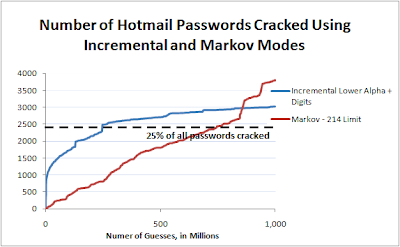The RockYou 32 Million Password List Top 100
But first, a quick responses to one of the previous comments, (since it really did merit a front-page post). Tfcx posted: The initial vulnerability was posted 29th November on a hacking forum called darkc0de here: http://forum.darkc0de.com/index.php?action=vthread&forum=11&topic=13082 Thanks, as that really helps narrow down the timeframe, (and reading that post and related posts was interesting if a bit depressing). The hack itself appears pretty straightforward once you see it, (like most things once the solution is presented to you it's easy, but finding it in the first place is hard). I'm still interested in the hacker Igigi, and have been tossing about all sorts of theories; but I'll refrain from posting them here since they are all pure WAGs right now. Now on to the main topic: Per Thorsheim wrote: I would like to see a comparison of Twitters 370 banned passwords against the top 370 or so passwords stolen from rockyou (http://www.techcrunch.com/2009/12/27/twi...

